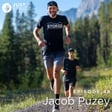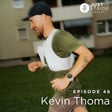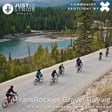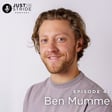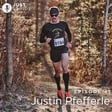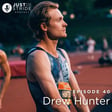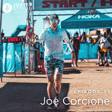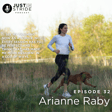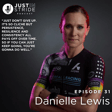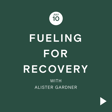
Rob Watson on his love of running and pursuit of the Olympic dream, life after running, finding other ways to test himself physically, love of cycling and triathlon, coaching other on how to achieve their goals
I always find it fascinating how our passion can take on many forms and mean different things to us throughout our lives. I also believe you need to do things you want to do while you’re healthy and while you can because the opportunity to do so may not always be there. So get out there and do what you love for as long as you can.
On this episode of Just In Stride I shared a great conversation with former pro marathon and now coach, Rob Watson.
Simply put, Rob was a pure talent and wanted to run fast. He ran in school and after, in pursuit of his Olympic dream.
He never actually made an Olympic team but it certainly wasn’t for a lack of trying. He ran huge mileage and went all in on his training, traveling to compete in order to make strides in his sport. He’s won 4 national titles and qualified for a bunch of international competitions, including 2 world championships. Today he enjoys sharing his expertise and knowledge with others through coaching, in order to help athletes achieve their own goals.
Rob Watson — Mile2Marathon Coach
Rob Watson (@robtalksrunning) • Instagram photos and videos
Rob talks Running | Podcast on Spotify
-------
Offer from Xact Nutrition: This episode is presented by our friends at Xact Nutrition and they are offering you 15% OFF your order when you use the code JUSTINSTRIDE. So head to xactnutrition.com and fuel your goals today! Now shipping in Canada and the U.S.
Thanks for tuning in to the Just In Stride Podcast. I truly appreciate you taking the time to listen and I hope you enjoyed that conversation as much as I did. Please take a minute after this to rate and review our show on Apple Podcasts. With your feedback we’ll be able to make the show even better and it’ll help us reach new listeners too. You can also find us on Instagram @justinstridepod and YouTube @justinstridepod for all the latest episodes and updates. Glad you came along for the ride with Just In Stride!
